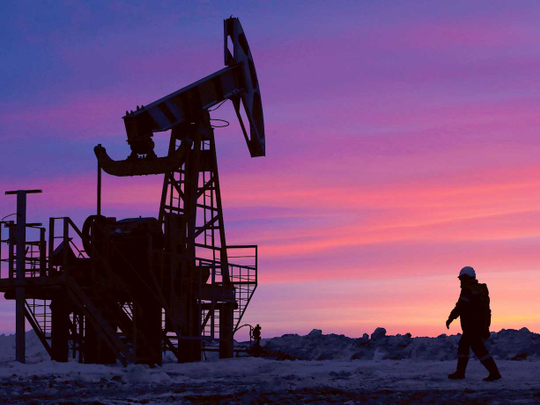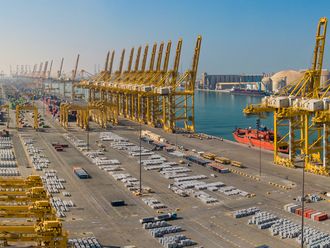
New York: Oil speculators headed for the sidelines as Opec members prepare to discuss freezing output in the face of signs the supply glut will linger.
Money managers cut wagers on both falling and rising crude prices before talks between Opec and other producers later this month. The meeting comes after the International Energy Agency said that the global oversupply will last longer than previously thought as demand growth slows and output proves resilient.
“It’s a cliff trade right here,” said John Kilduff, partner at Again Capital LLC, a New York hedge fund focused on energy. “There’s more uncertainty than usual in the market because of the upcoming meeting. People are waiting for the outcome and a number think this is a good time to stand on the sidelines.”
The Organisation of Petroleum Exporting Countries plans to hold an informal meeting with competitor Russia in Algiers Sept. 27, fanning speculation the producers may agree on an output cap to shore up prices. Oil climbed 7.5 per cent in August after Opec announced talks in the Algerian capital.
The group may hold a formal meeting if ministers reach a consensus in Algiers, Opec Secretary General Mohammed Barkindo said, Algeria’s official news agency reported Sunday. Members are close to reaching an agreement, Venezuelan President Nicolas Maduro said after speaking to his counterparts from Ecuador and Iran.
Speculators trimmed their short position in West Texas Intermediate crude by 29,195 futures and options during the week ended Sept. 13, according to the Commodity Futures Trading Commission. Bets on rising prices also declined, bringing the total of longs and shorts to the lowest since July.
WTI futures advanced 0.2 per cent to $44.90 a barrel in the report week. The contract traded 1.8 per cent higher at $43.82 as of 12:37pm in Hong Kong.
World oil stockpiles will continue to accumulate into late 2017, a fourth consecutive year of oversupply, according to the IEA. Just last month, the agency predicted the market would start returning to equilibrium this year.
Opec production rose last month as Middle East producers opened the taps, the IEA said. Saudi Arabia, Kuwait and the United Arab Emirates pumped at or near record levels and Iraq pushed output higher, according to the agency.
“Opec is out of bullets,” said Stephen Schork, president of the Schork Group Inc., a consulting company in Villanova, Pennsylvania. “Even if they agree on a production freeze it will be at such a high level that it will be meaningless.”
Money managers’ short position in WTI slipped to 101,079 futures and options. Longs fell 1.5 per cent to the lowest level since July. The resulting net-long position rose 14 per cent.
In other markets, net-bullish bets on gasoline rose 82 per cent to 20,310 contracts as futures increased 4.6 per cent in the report week. Part of Colonial Pipeline Co.’s main gasoline line, capable of carrying 1.3 million barrels a day from the Gulf Coast to the eastern US, was shut after a leak, reducing deliveries to New York Harbor, the delivery point for Nymex contracts.
Net-long wagers on ultra low sulphur diesel tumbled 57 per cent to 4,233 contracts. Futures advanced 1 per cent.
Libya and Nigeria, whose supplies have been reduced by domestic conflicts, are preparing to boost exports within weeks. An increase in shipments from the African countries would negate the bearing a production freeze would have on the market, said Michael Lynch, president of Strategic Energy & Economic Research in Winchester, Massachusetts.
“If Opec members agree to a freeze and some countries are bringing back production the market will come under noticeable pressure,” Lynch said. “If you see more regular loading at Libyan ports, it will send crude a couple dollars lower pretty quickly.”











